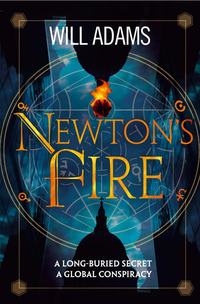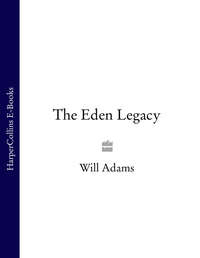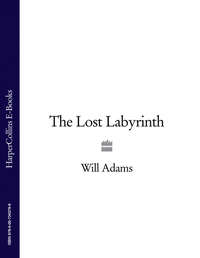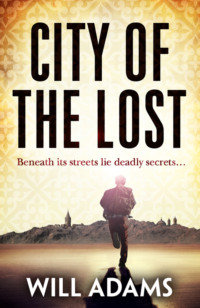
Полная версия
The Exodus Quest
‘The Therapeutae?’ frowned Omar. ‘Weren’t they early Christians?’
Knox shook his head. ‘They had Christian attitudes and practices, and they were claimed as Christians by certain early church fathers, and it’s even possible they became Christians. But they can’t have started out as Christians, not least because they were living in and around Alexandria before Christ started preaching. No, they were Jews, all right. Philo admired them so much he almost joined them, after all, and he was certainly Jewish. What’s more, he implied a very strong connection between them and the Essenes. The Therapeutae were his ideal of the contemplative life, the Essenes of the active life. But their beliefs and practices were otherwise virtually indistinguishable.’
‘In what ways?’
‘Both were extremely ascetic,’ said Knox, scratching the resinous scab of a mosquito bite on his forearm. ‘It’s commonplace now, but no one used to think there was much virtue in poverty before the Essenes. Their initiates had to hand over most of their worldly belongings when they joined, as did new Therapeutae. Both rejected slavery and considered it an honour to serve others. Both held their elders in great esteem. Both were vegetarian and disapproved of animal sacrifice, perhaps because both believed in reincarnation. Both dressed in white linen. Both were renowned for their medical skill. Some argue that the words Essene and Therapeutae actually derived from Aramaic and Greek for healers, though it’s more probable they both meant “servants of God”.’ He turned south onto the low causeway across Lake Mariut, where a few fishermen were idling away their day on the rocky verges. ‘Purification rituals mattered hugely to both. Both were largely or completely celibate, sustaining their numbers through recruitment rather than procreation. Both sang antiphonal chants. In fact, some Passover hymns found at Qumran might well have been composed by the Therapeutae. Both used a solar calendar, as opposed to the usual Jewish lunar calendar. And both had a ritual three hundred and sixty four days to their year, even though they knew the real figure.’
They arrived south of the lake, a barren landscape of Bedouin farms, vast industrial complexes, expensive verdant villas and large stretches of rocky waste-ground that no one had yet found a use for. Knox pulled into the side to consult their map. A grey heron looked quizzically at him from a reed-bed. He winked at it and it flapped leisurely away.
‘The Essenes and the Therapeutae,’ prompted Omar.
‘Yes,’ nodded Knox, pulling away again, turning west, the map open on his lap, keeping as close to the lake as the roads allowed. ‘Both were keenly interested in the hidden meanings of the scriptures. Both knew secrets they couldn’t divulge to outsiders, such as the names of angels. Geometry, numerology, anagrams and word-plays held special meaning to both, as did jubilees. The Therapeutae held a feast every seven days, a more important one every fifty days. Fifty was a very special number, you see, because it was the sum of three squared plus four squared plus five squared; and any triangle with the lengths of its sides in the ratio of three, four, five is a right-angled triangle, which they held to be the building-block of the universe.’
‘Right-angled triangles? Isn’t that more Greek than Jewish?’
‘Absolutely,’ agreed Knox, turning left down a narrow lane, flat tilled fields to their right, bare limestone bedrock to their left. ‘They had an amazing amount in common with the Pythagoreans. Diet, calendar, rituals, beliefs. All the things I just mentioned. And clear traces of sun-worship too. Ancient Alexandrians actually claimed that Pythagoras derived all his knowledge from Moses, that his religion was essentially Egyptian. He did spend twenty years here, after all. So maybe he got it all from the same place as the Therapeutae.’
An irrigation canal ran along the left-hand side of the road, its banks grazed by goats. This whole area was a lattice of channels distributing fresh water from the Nile. By his reckoning, the excavation should be somewhere the other side. He kept going until he saw an earthen bridge ahead, guarded by two men in uniform playing backgammon on a wooden trestle table. He turned left over the bridge, pulled to a stop beside them. ‘Is this the Texas Society dig?’ he asked.
‘What do you want?’ asked the elder of the guards.
‘To talk to the chief archaeologist.’
‘You mean Mister Griffin?’
‘If that’s his name.’
‘You have an appointment?’
‘This is Mr Tawfiq,’ said Knox, nodding at Omar. ‘He’s head of the Supreme Council in Alexandria, and he wants to speak to the chief archaeologist. I suggest you let him know we’re here.’
The guard held Knox’s eye, but when Knox didn’t look away, he stood, turned his back, held a muttered conversation on his walkie-talkie. ‘Very well,’ he said gruffly, once he was done. ‘Follow this track to the end. Wait by the cabin. Mister Griffin will meet you there.’
‘So?’ asked Omar. ‘Do we know where these Therapeutae of yours lived?’
‘Not exactly,’ admitted Knox. ‘Philo did give us some clues, though. For example, he said that their settlement was on a slightly raised plain within reach of the sea breezes. And that they were close enough together to defend each other from attack, yet far enough apart to be alone with their thoughts. Oh, yes, and he told us one other thing.’
‘Which was?’
The two men topped a small rise. A wooden cabin with a canvas extension came into view, two battered white pick-ups and a 4x4 parked outside. And, in the distance, the flat blue sheen of Alexandria’s great lake. Knox turned to Omar with a slight smile. ‘That their settlement was on the southern bank of Lake Mariut,’ he said.
FOUR
I
Lily Auster stared bleakly out the window of the Discovery as Gaille drove them slowly through the narrow wending alleys of the Assiut bazaar. Two days into her first proper overseas assignment, already a train wreck. She clenched her fist until her nails dug pale crescents in her palm. Get a grip, girl, she told herself. A setback, that’s all. It was her job to deal with setbacks and then move on. If she couldn’t deal with such things, she should find a new career. She forced a smile first onto her lips and then up into her eyes and leaned forwards between the front seats. ‘So you’re Gaille Bonnard, yes?’ she asked with all the brightness she could muster.
‘Yes,’ agreed Gaille.
‘I rang Fatima while we were on the train,’ nodded Lily. ‘She said you’d be meeting us. Thanks so much for helping out back there. I thought we were toast.’
‘Forget it,’ said Gaille.
‘I’m Lily, by the way. Lily Auster. And of course you recognize our star, Charles Stafford.’
‘Of course,’ agreed Gaille. ‘Pleased to meet you both.’
‘Bloody maniacs!’ muttered Stafford. ‘What was wrong with those people?’
‘Things are very tense around here at the moment. Two young girls have been raped and murdered. And they were both Copts. Egyptian Christians, that is.’
‘I know what a Copt is, thank you,’ said Stafford.
‘Those poor girls,’ said Lily, checking herself in the rear-view mirror, her eyes flicking instinctively to her cheek. The laser treatments had done exactly what the brochure had promised, reducing her vivid port-wine birthmark to a reddish-brown glow that people barely even noticed any more. But she’d discovered an unwelcome truth about disfigurement: suffer it long enough, and it became a part of who you were, your personality. She still felt ugly, no matter what the mirror tried to tell her. ‘But why is it significant they were Copts?’
‘The last time anything like this happened – a murder – the police simply rounded up hundreds of other Copts. It caused an awful lot of friction with the West. People assumed it was religious discrimination, you see – Muslim on Christian; though it wasn’t, really. It’s just how the police investigate around here. They grab all the nearest people and beat them until one of them talks. But this time, instead of rounding up Copts, they’ve used it as an excuse to grab all the local Islamic firebrands and beat them instead. And their friends and families blame people like us. There’s a big march on through the city this afternoon.’
‘Charming,’ nodded Stafford, his interest fading fast. He turned to Lily. ‘What luggage did we lose?’
‘Just clothes, I think,’ said Lily. ‘I saved our equipment.’
‘My clothes, I suppose.’
‘Both our clothes.’
‘What the hell am I supposed to wear on camera?’
‘We’ll find you something. Don’t worry.’ Her smile had become strained these past few days. Working for Stafford would do that to you, particularly if your colleagues had jumped ship, as hers had. Last night over dinner he’d gone on about his recent trip to Delphi. Gnothi Seauton, the Oracle had advised. Know thyself. Stafford had sat back in his chair and claimed it as his prescription for a fulfilled life. Her unintentional snort had sprayed atomized droplets of white wine across the tablecloth. She’d never met a man with such little self-awareness, yet he’d done absurdly well, was both successful and happy. Oh, to be a narcissist, with unshakeable faith in your own beauty and wonderfulness. And to have people admire you for it too! Because they did: people were such fools, they took others at their own estimate. She turned back to Gaille. ‘Fatima said you’d come with us tomorrow. That’s so kind of you.’
‘Tomorrow?’ frowned Gaille. ‘How do you mean?’
‘Didn’t she mention it?’
‘No,’ said Gaille. ‘She didn’t. Why? What’s happening?’
‘We’re filming in Amarna. Our guide went AWOL.’
‘Good riddance to him,’ muttered Stafford. ‘Man had an attitude.’
‘That’s why we had to take the train,’ said Lily. ‘Your professor said she’d come with us. But now apparently something’s come up. So we’re really stuck. It’s not just that we need an expert to talk to camera, though that would be great. It’s that neither of us speak Arabic. I mean, our documentation’s in order and everything, but I don’t know how things work around here. Every country has its own ways, you know?’
‘I’ll have a word with Fatima when we get back,’ sighed Gaille. ‘I’m sure we’ll be able to sort something out.’
‘Thanks,’ said Lily, squeezing Gaille’s shoulder. ‘That’s brilliant of you.’ A pang of shame, quickly suppressed. It was one of the hidden penalties of ugliness that no one ever volunteered their help; you had to find other ways to get what you needed: flattery, bargaining, bribery, throwing yourself on their mercy.
They drifted to a halt. Lily glanced through the windscreen. The way ahead was blocked by metal barricades, ranks of riot police in black uniforms and helmets, the protest march passing the other side, fervent young men in robes, the perfect oval faces of the women in their hijab, others completely veiled by their niqab. A sweet stab of longing low in Lily’s stomach. As a girl, how envious she’d been of Muslim women, able to hide behind the sanctuary of burkha. ‘I hate to ask,’ she murmured, ‘but are you sure this is the right way?’
II
Knox and Omar leaned against the Jeep as they waited for Griffin. ‘Maha said these were bullet-holes from that Alexander business,’ said Omar, fingering the patched-up bodywork. ‘They’re not really, are they?’
‘Afraid so.’
Omar laughed. ‘You do live, Daniel.’
‘Only just.’ He stooped to check the ground. The site was on a gentle hummock of limestone, almost completely bare of soil, useless for farming and untouched by industrialization or property development. If people had lived here in ancient times, there was a fair chance traces of them would have survived. He looked up at the scuff of footsteps. Two middle-aged men emerged from behind the cabin, their clothes and hair grey with dust and cobwebs. ‘Mister Tawfiq,’ said the first, thrusting out his right hand, revealing a dark crescent of sweat beneath his armpit. ‘I understand you’re the new head of the SCA in Alexandria. Congratulations.’
‘Oh,’ said Omar. ‘I’m only interim head, you know.’
‘I met your predecessor, of course. A terrible tragedy to lose such a good man so young.’
‘Yes,’ agreed Omar. He turned to Knox. ‘And this is my friend, Mister Daniel Knox.’
‘Daniel Knox?’ asked the man. ‘Of Alexander’s tomb fame?’
‘Yes,’ acknowledged Knox.
‘We are honoured,’ he said, shaking his hand. ‘I’m Mortimer Griffin. Chief archaeologist of this excavation.’ He turned to his companion. ‘And this is the Reverend Ernest Peterson.’
‘An excavation with its own chaplain?’ asked Knox.
‘We’re really a training dig,’ explained Griffin. ‘Most of our crew are very young, you know. Away from home for the first time, a lot of them. Their parents feel better knowing they have moral guidance.’
‘Of course,’ said Knox. He offered to shake Peterson’s hand, but Peterson just stood there, his arms folded, staring back with a granite smile.
‘So what can we do for you gentlemen?’ asked Griffin, pretending nothing had just happened. ‘All this way without an appointment. It must be important.’
‘Yes,’ agreed Knox. ‘I’m beginning to think it might be.’
III
Stafford sighed loudly as Gaille pulled to a stop by the barriers. ‘Don’t tell me we’re lost!’
‘I had to get us away from the station,’ said Gaille defensively. She leaned forwards. Late afternoon sun blurred like a headache on her dusty windscreen. There was no indication of when the march might end and the barricades be removed. Nothing for it: she pulled an awkward five-point turn in the narrow street, headed back through the bazaar and emerged onto the square outside the crowded train station, the traffic and emerging passengers forcing her to slow almost to walking pace as she worked her way through the crowd.
Two men were laughing good-naturedly as they tussled over a straw hat. ‘That’s mine!’ scowled Stafford. He lowered his window, grabbed for his hat. The two men danced off yelling cheerful insults, bringing the Discovery to general attention. People walked in front, forcing Gaille to a stop. ‘What are you doing?’ protested Stafford, raising his window back up.
‘I thought you wanted your hat.’
‘Get us out of here.’
Gaille pressed her palm on her horn, revved her engine until the throng reluctantly parted, allowing her to squirt through a gap and away. But the traffic lights ahead turned red, a three-wheel van blocking their escape. Gaille glanced back. A tall youth was swaggering after them, swinging his shoulders, probably only wanting to impress his friends; but the seconds passed and the lights didn’t change, and he drew closer and closer, so that Gaille knew he’d have to do something or look ridiculous. She checked to make sure the doors were all locked, looked around again. The man stooped, picked up a stone the size of an egg from the edge of the kerb, threw it hard. It clanged on their roof, skittered off down the street. Others began to near. A clod of earth exploded on their back window, leaving an ugly brown smear. The lights finally turned. The three-wheeler struggled to get away. Suddenly they were surrounded, people banging on their windows. A man reached beneath his robes just as an explosion, like a firecracker, made Gaille’s hands jump on the steering wheel. A wisp of smoke leaked apologetically from the three-wheeler’s exhaust as it finally picked up speed. She stamped her foot down indignantly and accelerated away.
FIVE
I
‘Well?’ said Griffin. ‘Won’t you tell us why you’re here?’
‘I was offered an artefact in Alexandria this morning,’ replied Knox. ‘The seller said it was from an excavation south of Mariut.’
‘You shouldn’t believe what those people tell you. Anything for a sale.’
‘Yes,’ agreed Knox.
Griffin’s eyes narrowed. ‘What kind of artefact exactly?’
‘A storage-jar lid.’
‘A storage-jar lid? You came all this way for a storage-jar lid?’
‘We came all this way because we think antiquities theft is a serious matter,’ said Omar.
‘Yes, of course,’ nodded Griffin, suitably chastened. ‘But you must realize there used to be a substantial pottery industry out here. They made jars to transport grain and wine all around the Mediterranean, you know. Good wine, too. Strabo commended it highly. So did Horace and Virgil. They even found some amphorae of it off Marseilles, would you believe? Walk along the old lake-front here, you’ll find great heaps of ancient pottery fragments. Anyone could have picked up your lid from one of them. It didn’t have to come from an excavation.’
‘This lid wasn’t broken,’ said Knox. ‘Besides, it was … unusual.’
‘Unusual?’ said Griffin, shading his eyes from the sun. ‘In what way?’
‘What exactly is this site?’ asked Omar.
‘An old farm. Of no great interest, believe me.’
‘Really?’ frowned Knox. ‘Then why excavate here?’
‘This is primarily a training excavation. It gives our students the chance to experience life on a real dig.’
‘What did they farm here?’
‘All kinds of things. Grain. Vines. Beans. Madder. Papyrus. You know.’
‘On limestone bedrock?’
‘This is where they lived. Their fields were on all sides.’
‘And the people?’
Griffin scratched beneath his collar, beginning to feel the pressure. ‘Like I say. This was an old farm. They were old farmers.’
‘What era?’
Griffin glanced at Peterson, but found no help. ‘We’ve found artefacts from the Nineteenth Dynasty on. But mostly Graeco-Roman. Nothing later than the early fifth century AD. A couple of coins from 413 or 414, something like that. There seems to have been a fire around that time. Luckily for us.’
Knox nodded. A good blaze would put a carbonized shell over a site, protecting it from the worst ravages of time and weather. ‘The Christian riots?’ he suggested.
‘Why would Christians burn down a farm?’
‘Why indeed?’ agreed Knox.
‘Perhaps you could give us the tour,’ suggested Omar into the ensuing silence. ‘Show us what you’ve been finding.’
‘Of course. Of course. Any time. Just make an appointment with Claire.’
‘Claire?’
‘Our administrator. She speaks Arabic, you know.’
‘That’s good,’ said Omar. ‘Because I can barely speak a word of English myself.’
Griffin had the grace to blush. ‘I’m sorry. I didn’t mean it that way. It was just if you had one of your people make the appointment for you.’
‘Can’t we speak to her now?’
‘I’m afraid she’s not on site. And this season may not be easy. Rush of work. So much to do. So little time.’ He waved vaguely at the desert behind him, as though they could see for themselves. But of course they could see nothing.
‘We wouldn’t get in your way,’ said Knox.
‘I think I’m the best judge of that, don’t you?’
‘No,’ said Omar tersely. ‘I think I’m the best judge.’
‘We report to Cairo, not you,’ said Peterson, speaking for the first time. ‘I’m not quite clear what your jurisdiction here is.’
‘Do you have an SCA representative here?’ asked Omar.
‘Of course,’ nodded Griffin. ‘Abdel Lateef.’
‘May I speak with him?’
‘Ah. He’s in Cairo today.’
‘Tomorrow, then?’
‘I’m not sure when he’ll be back.’
Knox and Omar shared a glance. The SCA representative was supposed to be on site full time. ‘You have an Egyptian crew, I assume. May I speak with your reis?’
‘By all means,’ said Peterson. ‘Just show us your authorization.’ He waited a moment for Omar to produce it, then shook his head in theatrical disappointment. ‘No? Well do come back when you have it.’
‘But I’m head of the Supreme Council in Alexandria,’ protested Omar.
‘Interim head,’ retorted Peterson. ‘Drive safely, now.’ And he turned his back on them and strode away, leaving Griffin to hurry after him.
II
Gaille was waved to a stop at a checkpoint a couple of kilometres north of Assiut, assigned two police cars for the return journey north. It was like that round here. In her headscarf, driving alone, Gaille was effectively invisible; but once she had such obvious Westerners as Stafford and Lily for passengers, there was little chance of avoiding an escort. Gaille hated driving in convoy like this; the police here drove at breakneck pace, wending wildly through traffic, forcing her to drive frighteningly fast just to keep up. But they reached the end of the police jurisdiction without incident and the two cars vanished as quickly as they’d appeared.
‘So what’s your programme about, then?’ asked Gaille, slowing with relief to a more comfortable speed.
‘I’ve a copy of the synopsis for this segment, if you’d like,’ said Lily from the back, unzipping her bag.
‘That’s confidential,’ snapped Stafford.
‘We’re asking Gaille to help,’ observed Lily. ‘How can she if she doesn’t know what we’re working on?’
‘Very well,’ sighed Stafford. He took the synopsis from Lily, glanced through it to make sure it contained no state secrets, then rested it on his knee and cleared his throat. ‘In 1714,’ he began sonorously, as if for a voice-over, ‘Claude Sicard, a French Jesuit scholar, came across an inscription cut into the cliffs at a desolate site near the Nile in the heart of Egypt. It turned out to be a boundary marker for one of the most remarkable cities of the ancient world, the capital city of a previously unknown pharaoh, a pharaoh who’d inspired the birth of a new philosophy, a new style of art, and – most of all – of bold new ideas about the nature of God that had shattered the status quo and irreversibly altered the history of the world.’
As opposed to reversibly altering it, you mean? thought Gaille, struggling not to smile.
Stafford squinted at her. ‘Did you say something?’
‘No.’
He pursed his lips, but then let it go, picked up where he’d left off. ‘The new ways had proved too much for the Egyptian establishment, however. Extraordinarily, it would transpire, this city hadn’t just been abandoned, it had been deliberately dismantled, brick by brick, to remove any evidence of its existence. And all across Egypt, every mention of this man and his reign had been meticulously erased so that the seas of time closed over his head without a trace. Who was he, this heretic pharaoh? What crime had he committed that was so monstrous, it had had to be expunged from history? In his latest groundbreaking book and companion documentary, iconoclastic historian Charles Stafford explores the astonishing multiple mysteries of the Amarna era, and puts forward a revolutionary new theory that not only shatters the way we think about Akhenaten, but will also rewrite our notions of the history of the ancient Near East.’ He folded the sheet back up, tucked it away in his inside jacket pocket, looking rather pleased with himself.
A donkey was standing in the middle of the road ahead, its front legs hobbled so that it could move only in feeble bunny-hops. Gaille put her foot on the brakes, slowing right down, trying to give it time to reach the verge, but it didn’t move, it just stood there, terrified and bewildered, so that she had to cut into the other lane to drive around it, provoking angry bursts of horn from other traffic. ‘Your programme’s really going to do all that?’ she asked, checking anxiously in her rear-view until the donkey had vanished from sight.







